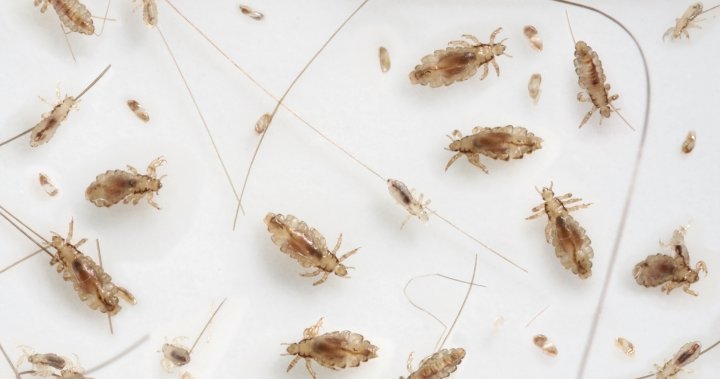Head lice are becoming increasingly resistant to traditional treatments, posing a challenge for those trying to rid themselves of these persistent pests. These so-called super lice have developed genetic mutations that make them resistant to over-the-counter and prescription medicated shampoos containing chemicals like pyrethrins and permethrin. Infestations are common among school-aged children and can spread easily through close contact or sharing personal items like combs or hats. These parasitic insects live on the human scalp, feed on blood, and lay eggs, causing itching and irritation. New methods of controlling lice are needed due to the growing resistance of these super lice.
The Canadian Paediatric Society states that traditional treatments with pyrethrin and permethrin may not be as effective as they used to be, as lice have become resistant to some of the chemicals used to kill them. Research has shown that a powerful strain of lice immune to key ingredients in most treatment products has evolved. As a result, there is a pressing need for newer and more efficient treatments for head lice. Parents have expressed frustration with the traditional method of chemical shampoos, leading them to try multiple products and adding stress and financial burdens to the family.
Health experts recommend exploring alternative treatment options approved by Health Canada, such as isopropyl myristate, a non-chemical treatment for head lice. Another recommended product is dimethicone, a silicone oil that effectively suffocates and immobilizes lice and their eggs. Benzyl alcohol lotion is also approved for use in Canada and is highly effective against live lice, though a second treatment may be required for eggs. Household products like mayonnaise, petroleum jelly, and olive oil have been proposed as treatments for head lice but are not as effective as topical insecticides.
When it comes to cost, consulting with a pharmacist is recommended, especially since certain provinces like Ontario provide insurance coverage for both chemical and non-chemical head lice treatments. It is important for families to educate their children on not sharing hats, combs, or hairpieces to prevent the transmission of lice. While head lice are typically seen as a problem when kids start school in September, they can also be transmitted during the summer months when kids are at day camps. Tackling head lice efficiently requires patience, knowledge of effective treatment options, and preventive measures to avoid re-infestation.


